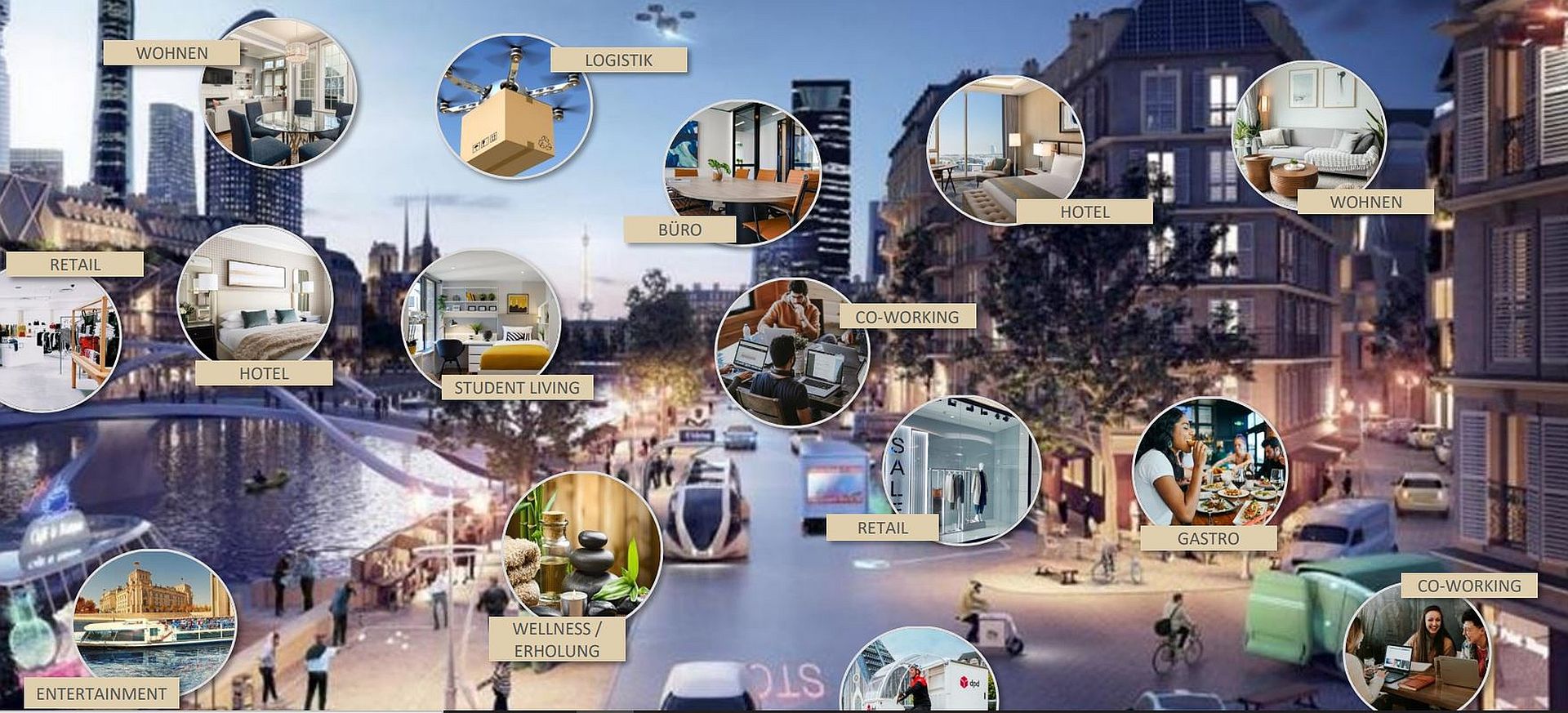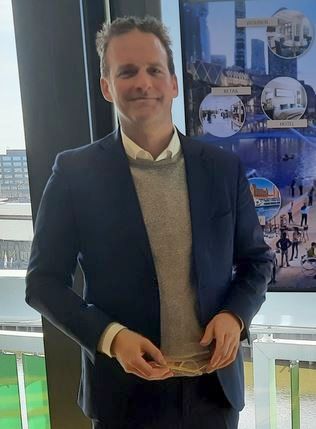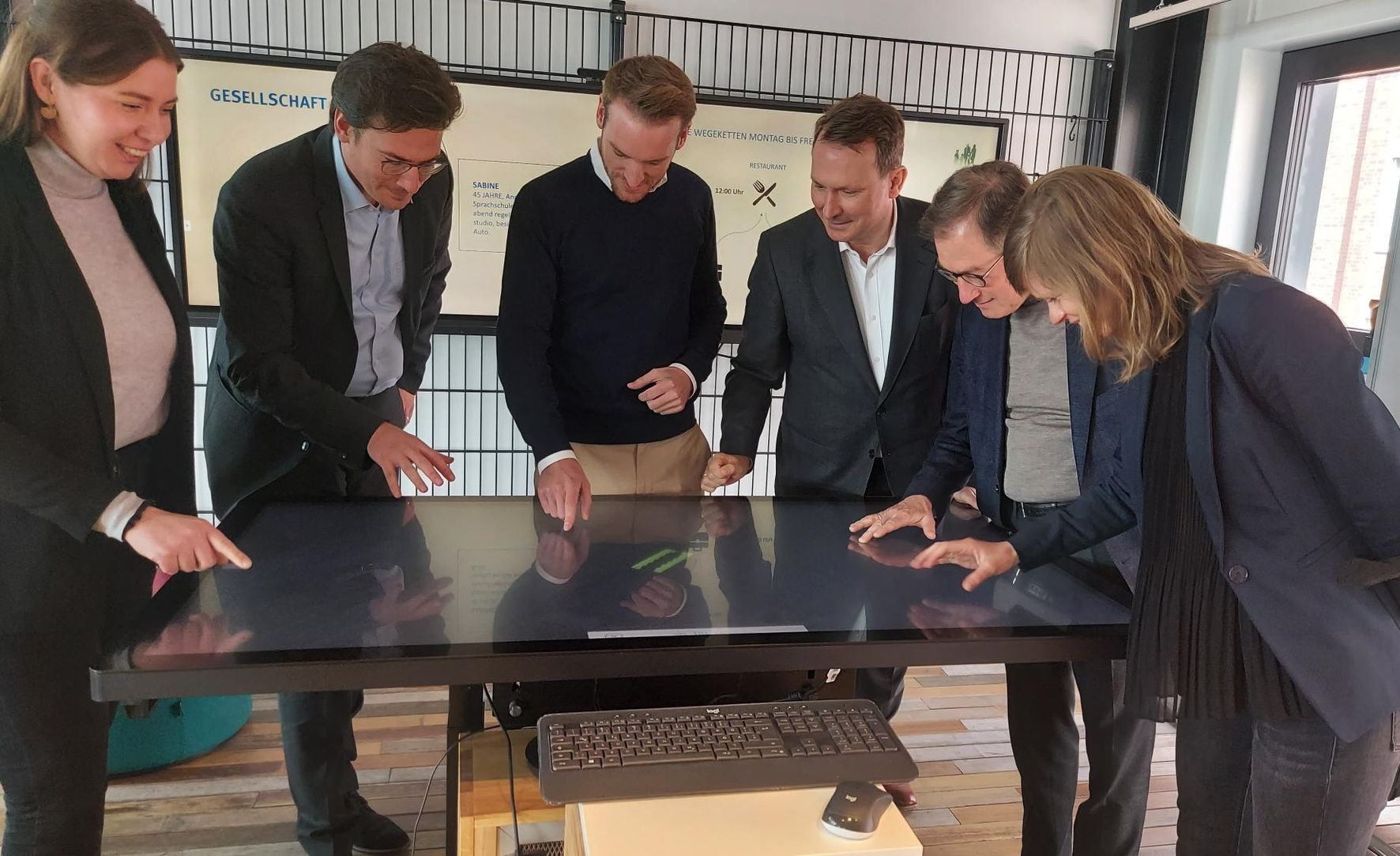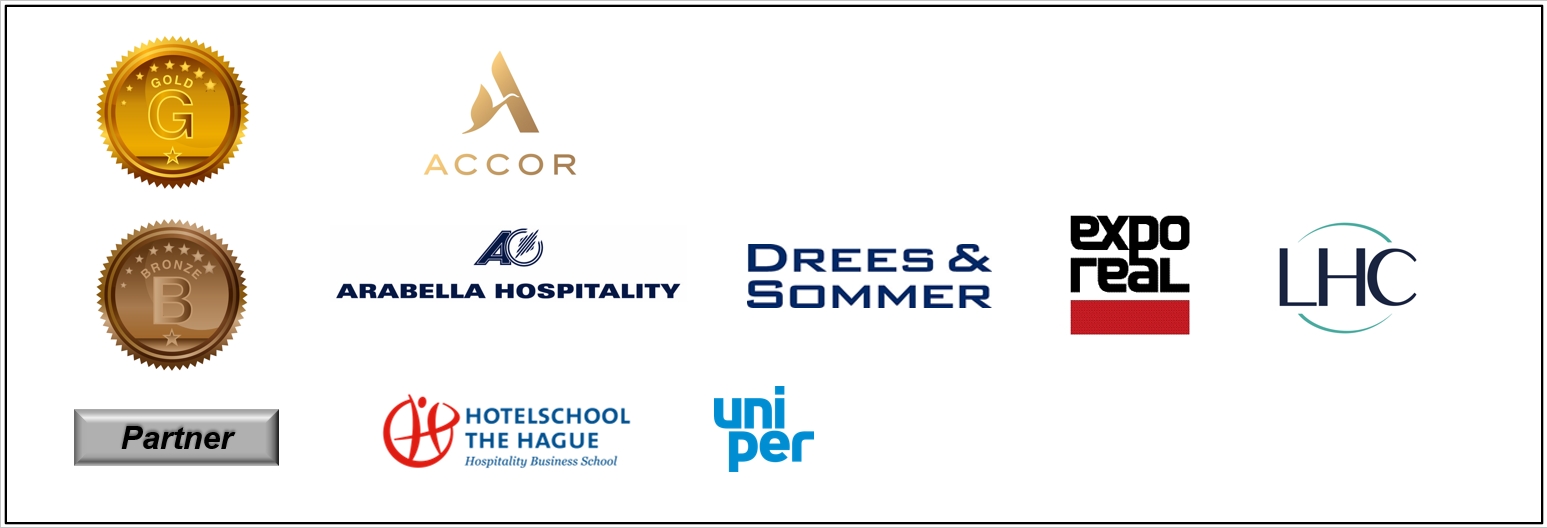HITT Workshop: In the future, living values will decide on hotel locations
 |
|
Mixed-use districts become a colourful cosmos with many functionalities for the everyday life of its residents. Asset classes disappear. / Collage: Drees & Sommer |
Hamburg (April 1, 2022). Investors and project developers have to rethink faster: Location, location, location will no longer be a decision criterion for hotel real estate in the future. Their value increases with their function, networking and location. And: From now on, change is a daily occurrence. Asset classes will dissolve. Such statements were discussed by the participants of the HospitalityInside Think Tank (HITT) in an in-depth post-event workshop on Tuesday in Hamburg. Furthermore, today we introduce the fifth impulse generator in HITT 2022, which is coming up at the end of June in Berlin: a man who knows how to convert web users into guests.
Rethinking is the order of the day. The walk through the ground floor of the Creative Campus Hammerbrooklyn in Hamburg gives a foretaste of "New Work": on the left glass offices and showrooms, on the right tables for working groups, in the middle fancy telephone boxes and eternally long table streets, as long as the building. The table tops end at the floor and rise again. Somewhere on the endless tabletops you can play chess, or miniature table tennis. That is New Work.
It can also be done differently. Art-Invest Real Estate is the developer of this young digital campus, which companies like the project manager Drees & Sommer use to search for solutions for the city of the future with others. The perfect setting for the new thinkers who also meet at HospitalityInside events and with whom Drees & Sommer, as a HITT partner, went thematically in depth for the second time in an extra workshop.
The new lifestyle district is the old neighbourhood
Mixed use is a gateway to rethinking hotel real estate. In a new district, the good old "Kiez", new buildings and conversions meet, old and young from different social classes. The new way of life is called "blended living", living in hybrid concepts. It feeds, among other things, on the new sinus milieu of the neo-ecological: People with an environmentally and climate-sensitive lifestyle. They no longer think in terms of generations, but in terms of life phases, attitudes and lifestyle.
 |
|
| Prof. Phillip Goltermann: The new concepts offer great opportunities for hotels. / Photo: HI |
Against the background of these social changes, Prof. Phillipp Goltermann, Partner at Drees & Sommer, confronted the participants with challenging approaches from the real estate perspective.
> Properties can live to be 100 years old, but go through many different uses (e.g. with hotels as a ten-year tenant).
> Location no longer plays the most important role. Now it is the building functions.
> Buildings generate data. Coupled with the mobility data of their occupants/users, building locations and functions can be customised.
> Real estate no longer has to be rented in its entirety; instead, space can be booked, even on demand for a few hours.
> Hotel properties free up their ground floor for shops and thus interweave with life on the street.
> Asset classes also interweave, real estate gives up its single status and at the same time avoids the previous singular risk structure that only weighed on it.
Rethinking real estate and mixed-use districts means first analysing the mobility of the (desired) residents. Real estate is always the starting point and the end point of mobility - of movement between home and work, sports, parties and more. The individual mobility profile reflects the lifestyle and thus draws a realistic CO2 footprint.
Real estate responds to mobility
What does this mean for future hotel real estate? They respond to mobility and flexibility. They can make empty, unused space available as a logistics hub, for example: In the future, threats will drop off deliveries at so-called white label hubs, where cars or cargo bikes will pick them up and deliver them to the customer via a short, sustainable route. The AI will take over the route planning. Parked e-cars can (already today) be charged in the hotel garage and partially cover energy peaks in the hotel with their electricity. "Every company can be an energy trader in the future," Goltermann motivated.
Knowing the lives and ways of the district's residents determines the diversity of the mixed-use district. Hamburg is one of the progressive cities that love experiments. In the Ottensen neighbourhood, for example, they closed a few streets to turn them into a strolling zone. 70% of the residents thought the new calm was great, 44% of the traders thought it was stupid: the pub wanted to move away from its corner location into the middle of the strolling zone, but the pharmacy wanted to move from the middle of the street into the corner location.
 |
|
| Mixed use with the "Smart City Demonstrator": Drees & Sommer is in the process of building intelligent software for district planning. The HITT guests take a closer look. / Photo: HI |
Needs change business locations, living and lifestyle structures. Corona has already initiated this movement (New Work, Home Office, Bleisure). Like-minded people are coming together. "You should invest together in an underground car park," Goltermann encouraged investors. People will soon be able to reserve a parking space via an app anyway. That's where the realistic need comes from: In another Hamburg neighbourhood project, they found out in this way that only 0.3 parking spaces for cars are desired per flat. Why so few? Because neighbourhoods, similar to logistics hubs, will also have mobility hubs in the future - with services ranging from e-scooters to air taxis.
Location decisions under completely new criteria
Decisions on where hotels will be located and which types of hotels are suitable for which locations may in future also depend on their service offerings (functionalities): an air taxi landing pad nearby can provide guests of the conference centre with fast transport to the airport. For VIPs, there is a discreet lift or authorisation to the hotel.
However, a new location may also depend on what the air values are like in these areas. A hotel on the Elbe, with a view of incoming cruise ships, will have a hard time in the future: Because people now know that container ships and cruise giants emit soot particles, among other things, and produce immense CO2. Conversely, green and friendly places in the city centre are gaining in popularity. Then people will move back into the city centre. Currently, housing costs alone tend to drive people to the countryside. But with attractive neighbourhoods, this can quickly turn into the opposite.
Everything is changing, we have to get used to that. Prof. Goltermann emphasised this several times. He wants to shake people up, to open up, to think in a new way. His sentence of the day was: "Tomorrow is Yesterday today". / map
|
How hotel brands can nudge green customers Learn more about the new nudging behavior with HITT 2022 Websites have become the most important business card of hotels. But it's not so easy to find that famous little nudge that turns the user into a guest. He surfs the website, but drifts away again and does not book. And hotels and hotel groups have already lost a huge opportunity - especially in the area of sustainability. The growing search for "green" accommodation offers a mega opportunity to meet the guest's needs.
This is where the new nudging professionals have to step in. Nudging means "to nudge" or "to push" and is a strategy for behavioural change: people are to be persuaded without coercion to decide in favour of a desired behaviour. > Impulse generator: Join in, sign up. The other impulse generators also bring a lot of know-how with them and look forward to exchanging ideas with you!
THE HITT 2022: "Embrace ESG for people, planet and prosperity." When and where? On Monday/Tuesday, 27/28 June 2022 in Berlin City, Alt Moabit 91, on the ship. Why join? Register. For participation please use our registration form: https://hitt.world/#registration Details on www.hitt.world. Check the Think Tank website for permanent updates on the program. News? You can read regular announcements on Fridays in the hospitalityInside.com newsletter. Simply register here and stay tuned about the HITT as well as the entire industry!
hospitalityInside welcomes the sponsors of HITT 2022.
|
To print this article you have to be registered and logged in for newsletter, visitor or subscription.





